Operating for more than 30 years in Namibia, Wilderness continues to pioneer luxury hospitality and conservation across the country’s pristine wilderness areas, setting the benchmark in tourism-based conservation. Guided by its three Impact Pillars — Empower, Educate, and Protect – Wilderness Namibia is dedicated to ensuring its positive impact model benefits local communities and the economy, in addition to driving numerous conservation initiatives.
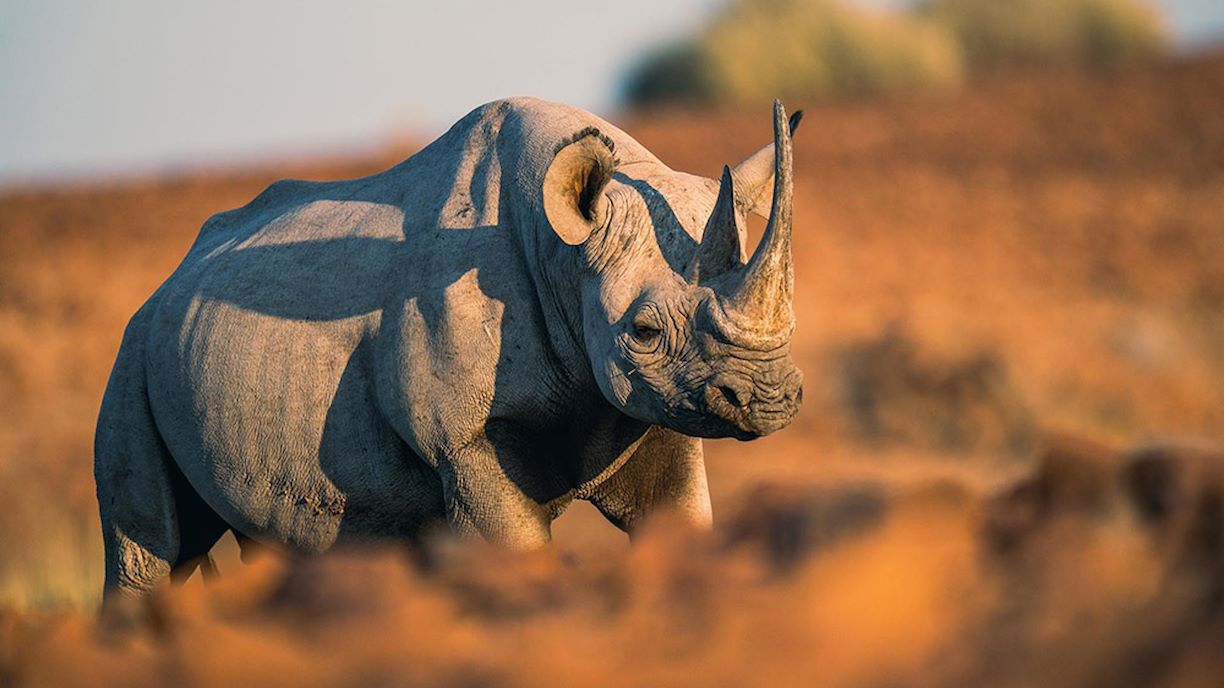
“We are proud to note that we employ over 360 people in our Namibia business, paying our staff over NAD 603 million in the last decade alone. We have sourced and purchased NAD 1.4 billion worth of goods and services from local suppliers, and remain committed to positively impacting the national economy”, noted Wilderness MD, Alex Henderson.
The various payments that Wilderness and its guests make to neighbouring communities are vital contributions towards empowerment. They create local economies and enable communities to invest in projects of their choosing. These payments have amounted to more than NAD 58 million over the last decade. With the support of a number of donors and other stakeholders, Wilderness has also been able to make significant philanthropic, empowering contributions. For example, Children in the Wilderness (CITW) facilitated the donation of a fully-fitted mobile clinic worth NAD 1.5 million to the Namibian Ministry of Health and Social Services for the communities living in and around the Marienfluss Conservancy, whose residents previously had to travel more than 300km for basic health care.
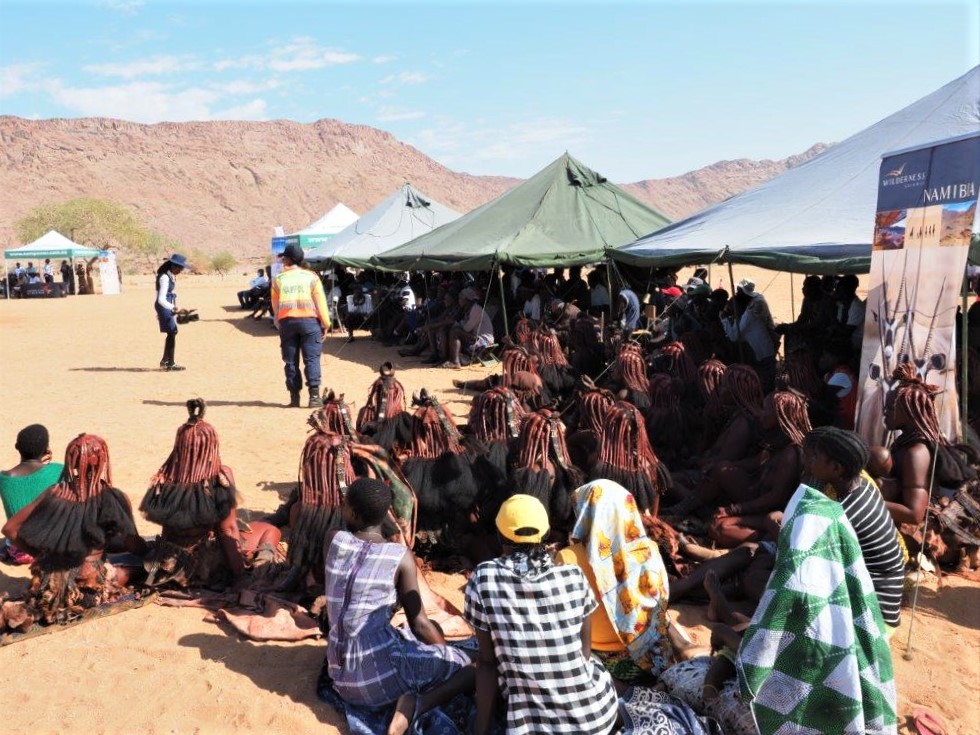
At the forefront of Wilderness’ Educate pillar is Children in the Wilderness (CITW), which aims to facilitate sustainable conservation through leadership development and education of children in our regions. Up to 400 children across 10 to 15 rural schools have participated each year in our CITW Namibia Eco-Clubs since inception, with more than 500 children having also attended 18 annual camps over the last 10 years.
“In December 2023, CITW Namibia held its annual Eco-Club camp at the Namib Environmental Education Trust (NaDEET). Forty-two children, teachers and Eco-Mentors from schools in our partner conservancy in the Kunene Region gathered for a week-long, life-changing, environmental mentorship and fun camp”, said Agnes Tjirare-Keri, Wilderness Namibia Impact Manager.
“The activities included parabolic solar cooking, playing the 5Rs (refuse, reduce, reuse, repurpose and naturally, recycle) game of recycling and waste management, understanding the biomes of Namibia, measuring our enviro-footprint, and exploring the Namib Desert on a dune walk. The learners were happy and grateful for such a once-in-a-lifetime experience, and were excited about how they are going to implement the initiatives back home in their respective towns and villages”.
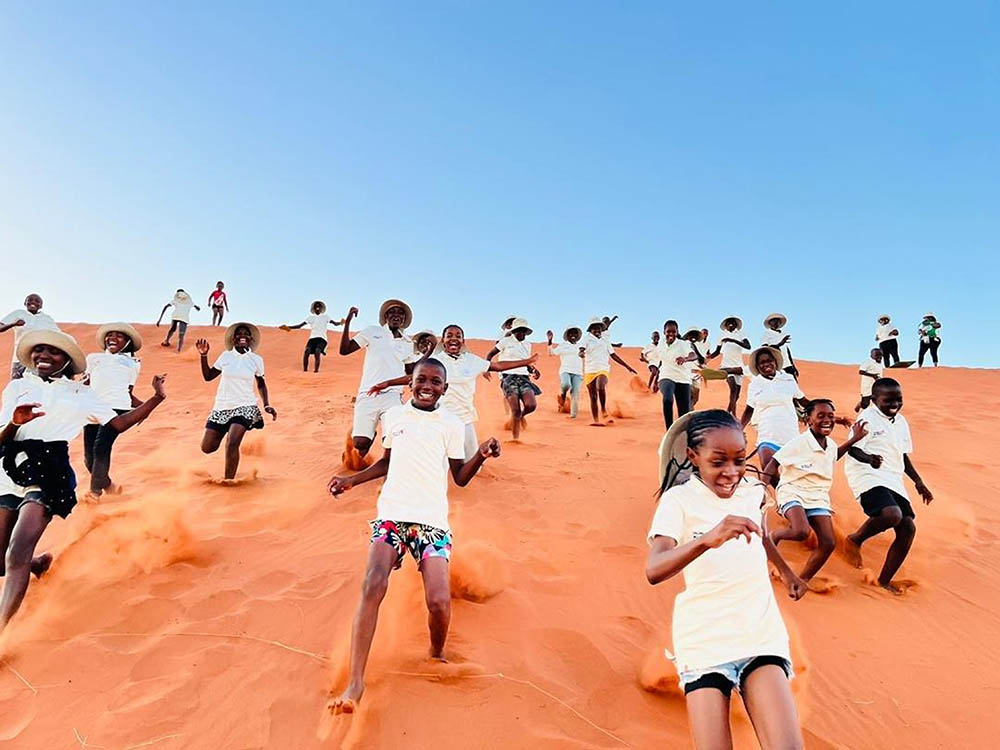
In line with the Namibian Government’s Vision 2030, CITW has implemented eco-gardens from which vulnerable learners at each partner school receive one warm meal per day. They can also practically apply the relevant science subjects to the garden to further entrench their classroom learnings.
Scholarships and bursaries are an important part of the Educate pillar, with 40 bursaries to the value of NAD 350,000 awarded to deserving students in need from local communities. Through its close relationship with CITW, the Okaepe Project School received a large dining hall and library with funds (NAD 600,000) donated by the US-based Kickin’ Back Organisation. Also with support from the Kickin’ Back Organisation, CITW supplied Warmquelle Primary School with a containerised library where the students now enjoy a three-hour study session for their school reading club, exams and homework completion.
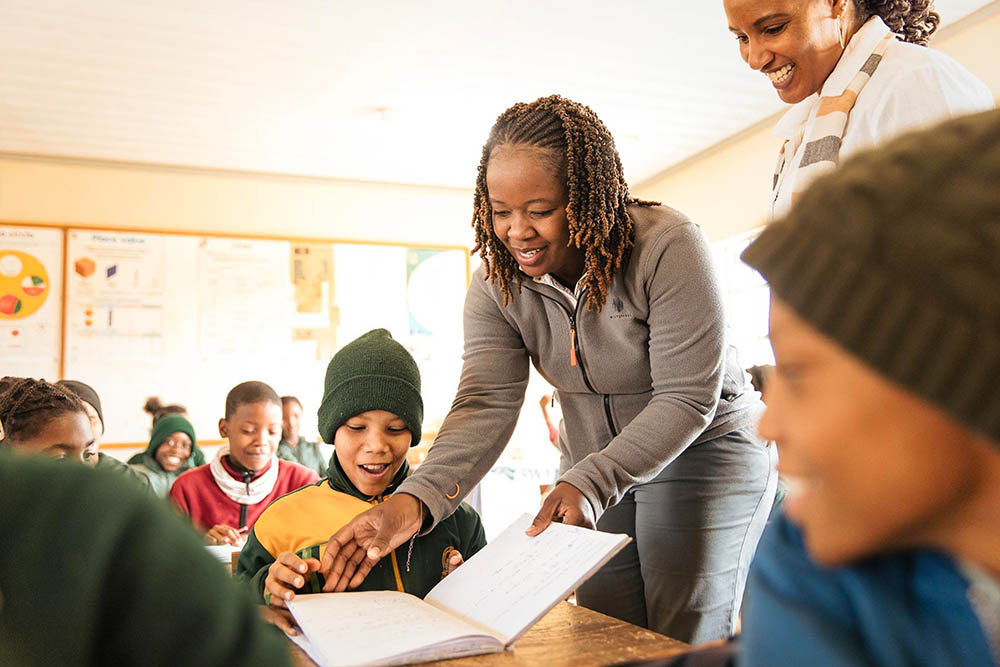
Wilderness is privileged to have exclusive access to 1.64 million hectares of community-owned concessions in the vast landscapes of Namibia. The single most important contribution that Wilderness makes to conservation are the payments made to communities and government for the use of leaseholds, concessions and national parks, as well as of the wildlife living in these protected areas.
Focusing on just one of these areas as an example, Wilderness Desert Rhino Camp continues to drive its inspiring conservation success story – the ongoing protection of one of the world’s last free-roaming Critically Endangered black rhino populations, in partnership with Save The Rhino Trust (SRT) Namibia and the “Big 3” community conservancies in the area.
“Our partnership has empowered SRT to successfully increase its rhino range by 20%, while consistently contributing to the largest and longest-running black rhino database in the world. The combined challenge we now face is increased poaching in the sub-region, making the success of our conservation tourism endeavours that much more critical for the long-term protection of the rhino”, Agnes added.
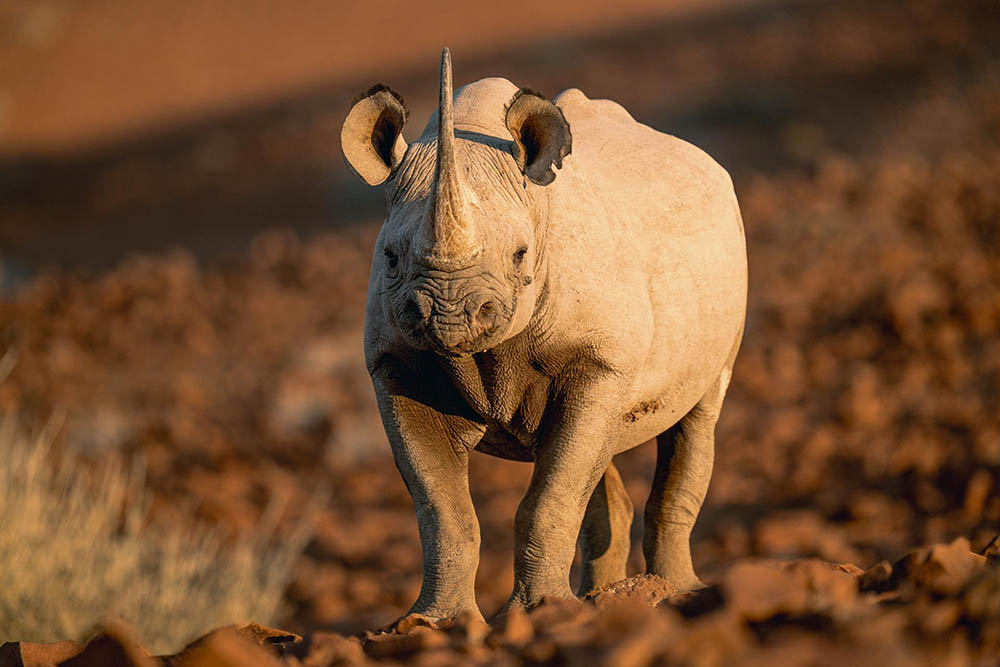
In support of reducing human-wildlife conflict, a solar water pump was installed for the Otjinungua community, whose members have been fetching water from the banks of the Kunene River, running the gauntlet of crocodiles and other hazards, since the inception of the village. The Desert Lion Conservation Trust and the Skeleton Coast Brown Hyena Project also help to alleviate human-wildlife conflict by conducting essential research and monitoring, and implementing management plans, particularly for the predator populations.
In 2012, Wilderness implemented its Group Environmental Management Systems (GEMS) to minimise environmental impacts from its operations, and to guide the development, operation, and decommissioning of camps. In Namibia, only one camp is connected to the national grid, and this camp is, in part, hydro-powered. Four camps are wholly solar-powered, and a further three operate on hybrid systems, which use solar power during the day and backup diesel generators at night.
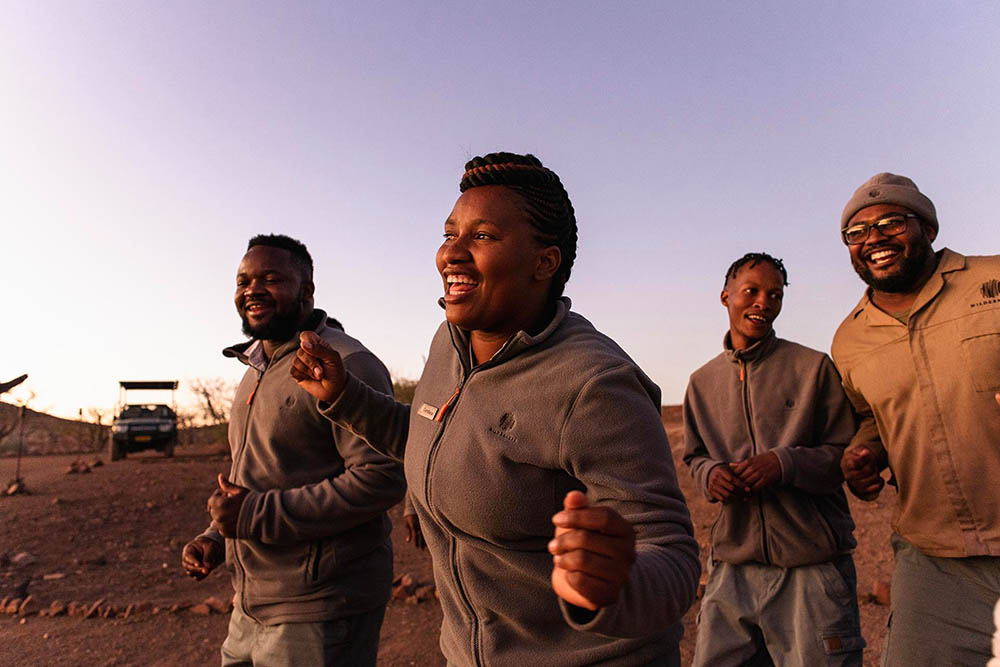
“We are proud to highlight this work in an annual Impact Report, which helps us maintain accountability, transparency and consistency in our essential conservation initiatives and impactful community empowerment efforts, ensuring we meet our regional goals. I am incredibly proud of my passionate team who continue to drive these positive results, and grateful for the ongoing support of our trade partners, guests and stakeholders – as a collective, we can continue to ensure the positive impact of sustainable tourism”, concluded Alex.



Let’s plan your next journey
Ready?
When we say we’re there every step of the way, we mean it, literally. From planning the perfect circuit, to private inter-camp transfers on Wilderness Air, and easing you through Customs. We’re with you on the ground, at your side, 24-7, from start to finish. Ready to take the road less travelled? Contact our Travel Designers to plan an unforgettable journey.